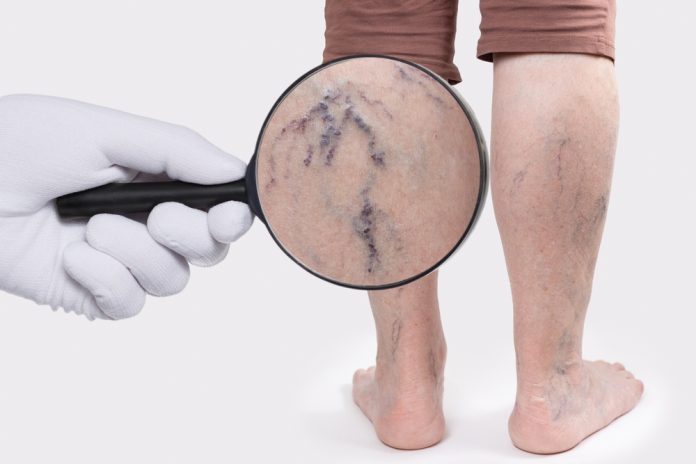Varicose veins, those swollen and twisted veins often visible just beneath the skin’s surface, can be a cause of concern for many individuals. While lifestyle factors such as prolonged standing or sitting can contribute to their development, there’s a compelling genetic component that should not be overlooked. Understanding the role of genetics, particularly through family history assessment, is crucial in determining an individual’s predisposition to varicose veins and the potential need for intervention.
Varicose veins are not solely a result of aging or lifestyle choices. Research indicates a hereditary connection, suggesting that if close family members have had varicose veins, an individual may be more susceptible.
Inherited weakness of vein walls and valves
A family history of varicose veins serves as a genetic roadmap, offering insights into the structural vulnerabilities within the circulatory system.
Genetic components often involve variations in genes that are responsible for the construction of vein walls. These variations can contribute to a weakened structural foundation, rendering veins more susceptible to stress and dilation.
Within the intricate network of veins, valves act as crucial gatekeepers, ensuring that blood flows unidirectionally toward the heart. Genetic factors intricately shape the composition and functionality of these valves. An inherited predisposition can compromise the integrity of these valves, making them more prone to dysfunction.
As genetic factors influence the structural components, the veins become predisposed to dilation. This dilation can lead to visible varicosities, as the veins struggle to maintain their normal shape and function.
Valves are vital for preventing the backflow of blood. Genetic influences can disrupt the function of these valves, leading to inefficiencies in blood circulation. Valve dysfunction becomes a key player in the development of varicose veins, as it contributes to the pooling of blood within the veins.
Families with a history of varicose veins often share common genetic threads, and the vulnerabilities identified through family history assessment guide healthcare professionals in tailoring preventive measures and intervention strategies.
Genetic variations in connective tissue
Genetic variations can affect the connective tissue that forms the structural framework of veins. The integrity of this connective tissue is vital for maintaining the strength, flexibility, and resilience of veins. When specific genes responsible for connective tissue integrity undergo variations, it sets the stage for a cascade of effects that can impact vein health.
Connective tissue, including collagen and elastin, provides the foundational support for veins. These proteins contribute to the tensile strength and elasticity of the veins, allowing them to withstand the dynamic pressures of blood circulation. Genetic variations in the genes governing connective tissue integrity can disrupt the delicate balance required for optimal vein function.
Weaker connective tissue, influenced by genetic variations, contributes to increased venous pressure. As blood circulates through the veins, the compromised structural integrity allows for greater distensibility. This increased distensibility leads to elevated pressure within the veins, particularly in regions where the connective tissue is weakened. The combination of weakened connective tissue and elevated venous pressure becomes a conducive environment for the development of varicosities.
Varicosities, or the visible and often bulging veins characteristic of varicose veins, result from the combined effects of weakened connective tissue and increased venous pressure. Genetic predisposition to variations in connective tissue genes creates a scenario where the veins struggle to maintain their normal shape.
Influence on venous reflux
Venous reflux is a phenomenon where blood, instead of moving efficiently toward the heart, flows backward and pools in the veins. This condition is often linked to genetic predispositions that affect the integrity of venous valves. Venous valves are essential components within veins that act as one-way doors, ensuring blood moves in the desired direction—toward the heart.
Genetic factors can impact the structure and function of venous valves. When these valves do not function optimally due to genetic variations, they may fail to close completely, allowing blood to reflux or flow backward. This backward flow results in increased pressure within the veins, leading to vein dilation and the development of varicose veins over time.
Assessing risk through family history
The chances of developing varicose veins are significantly elevated if an immediate family member, such as a parent or sibling, has had varicose veins. A thorough assessment of the family tree can provide valuable insights into the genetic component. The risk increases when varicose veins are present across multiple generations.
The age at which varicose veins manifest in family members can offer insights into when an individual might be more susceptible.
Medical intervention
Consultation with a vascular specialist becomes essential for those at higher risk. Modern treatments, including minimally invasive procedures, offer effective solutions for those suffering from varicose veins.
Understanding the genetic predisposition to varicose veins through family history assessment provides a valuable tool for risk evaluation. While genetics set the stage, proactive lifestyle choices and timely medical intervention can significantly influence the course of varicose vein development. Seeking the expertise of a vascular surgeon for vein treatment in Melbourne ensures a comprehensive approach to vascular health, blending genetic insights with modern treatment options for optimal outcomes.


